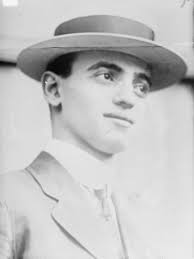The Leo Frank Case: A Turning Point in American Justice

Introduction
The Leo Frank case remains one of the most controversial and pivotal moments in American history, particularly regarding issues of justice, anti-Semitism, and racial tensions. Frank, a Jewish factory manager in Georgia, was convicted in 1915 of murdering a 13-year-old girl, Mary Phagan. His trial and subsequent lynching garnered national attention and raised questions about the fairness of the American judicial system and the deep-seated prejudices of the time.
Background of the Case
Mary Phagan was found dead in the basement of the National Pencil Company factory in Atlanta, Georgia, where Leo Frank was the superintendent. Shortly after her body was discovered, Frank was arrested, and he became the primary suspect largely due to circumstantial evidence and the biased testimonies provided during the trial. Despite a lack of substantial evidence linking him directly to the crime, Frank was convicted and sentenced to death.
The Trial and Public Outcry
The trial took place against the backdrop of a racially charged environment in the Southern United States. The prosecution’s case rested heavily on the testimony of a janitor at the factory, Jim Conley, who claimed Frank was guilty. The trial was marred by sensationalism and media manipulation, leading to a public outcry fueled by anti-Semitic sentiment. As news spread, Frank’s case became a rallying point for both civil rights advocates and those holding onto systemic prejudices.
The Aftermath
Leo Frank’s case took a dramatic turn in June 1915 when his death sentence was commuted to life imprisonment by Governor John M. Slaton after pressing evidence that suggested Frank’s innocence. However, a mob of residents, fueled by outrage and misinformation, stormed the prison, abducted Frank, and lynched him in Marietta, Georgia. This act not only highlighted the dangers of mob justice but also the failure of the legal system to protect vulnerable individuals.
Significance of the Leo Frank Case
The Leo Frank case had significant repercussions for American society. It laid bare the existing racial and ethnic tensions of the time and subsequently gave rise to the Civil Rights movement. Moreover, it sparked the reformation of Jewish communities in America and led to the founding of the Anti-Defamation League, which aimed to combat anti-Semitism.
Conclusion
Today, the Leo Frank case serves as a reminder of the complexities of justice, the influence of public perception, and the deep-seated prejudices that can derail due process. As society continues to grapple with issues of race and justice, Frank’s story remains pertinent, reminding us to strive for a system of fairness and equality for all individuals, regardless of their background. The legacy of the case underscores the necessity for vigilance in the pursuit of justice, ensuring that past mistakes are not repeated in the present or future.









